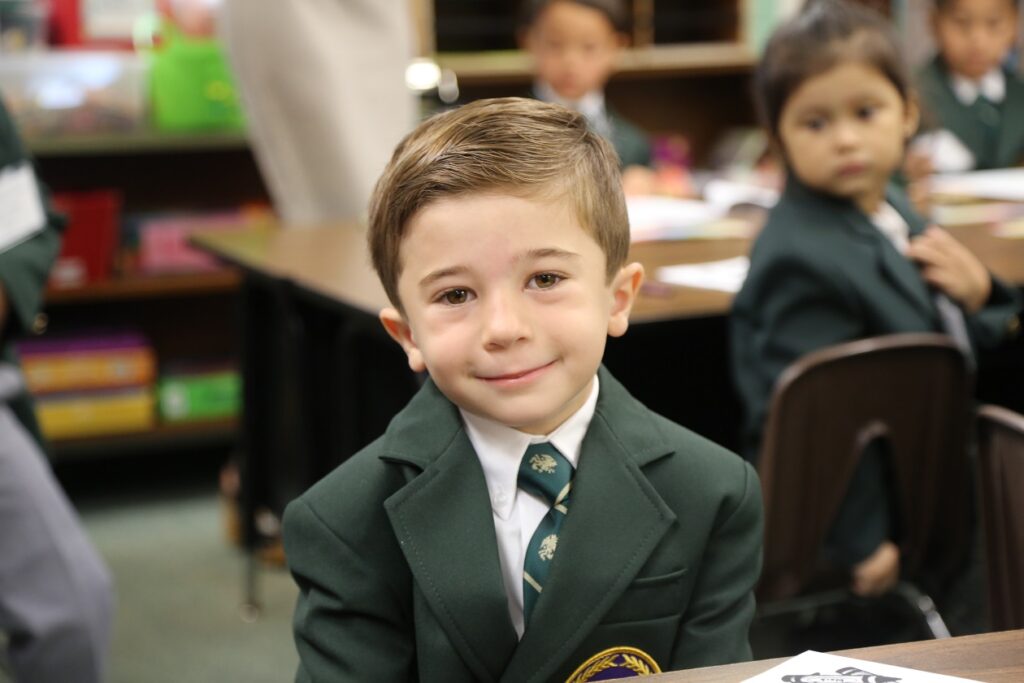Finding a School That Nurtures Social Development in Preschoolers
 Preschool is about a lot more than learning colors, shapes, and numbers. It’s an astounding time of growth for young learners. As children explore and learn more about themselves, these changes manifest as both personal and interpersonal development. When choosing a school for your young child, make sure that program proactively helps students navigate this emotional and social development in preschoolers.
Preschool is about a lot more than learning colors, shapes, and numbers. It’s an astounding time of growth for young learners. As children explore and learn more about themselves, these changes manifest as both personal and interpersonal development. When choosing a school for your young child, make sure that program proactively helps students navigate this emotional and social development in preschoolers.
4 Indications a School Will Nurture Your Preschooler’s Emotional and Social Development
Choosing the right school for your preschooler is no easy feat. The benefits of a private preschool education are profound, but not all private schools are created equal.
Here’s why to choose a preschool program that emphasizes social and emotional development.
1. Fosters Independence
Preschool is largely a time of transition for students. Children who were fully dependent on their caregivers are now learning how to do an increasing number of tasks on their own.
Even small things like zipping a jacket or putting on shoes without help are important ways for children to learn responsibility, to demonstrate independence, and to foster a sense of pride in their accomplishments.
Give preference to schools that emphasize those moments.
Tasks should be age appropriate, and help or guidance should be available to students who need it.
2. Encourages Interactive Play and Friendships
The social aspect is a major component of any preschool program.
Preschools should actively encourage interactive play between the students. This offers a number of benefits:
- Children learn patience and empathy through sharing and taking turns.
- Friendships are forged between the students.
- Nonverbal and verbal communication skills are honed through these interactions.
- When conflict arises between children, teachers can model healthy resolution tactics.
The social skills children learn in these early days serve as the foundation for a lifetime of interpersonal interactions.
3. Demonstrates and Promotes Positive Social Behavior
Social interactions are complex, dynamic, and challenging. Children should not be expected to inherently know how to deal with those situations.
A great preschool program will ensure teachers and other staff members actively and consistently model positive social behaviors for the students.
As anyone who’s ever dealt with a three-year-old knows, taking turns, dealing with big emotions, and demonstrating empathy aren’t easy for young children.
Preschool is an opportunity for children to see that positive behavior every day from their caring, attentive teachers. This includes everything from apologizing to waiting patiently to saying please and thank you.
4. Emphasizes Positive Communication
When young children feel big emotions, positive or negative, it can be overwhelming and difficult to process.
Say two students get into an argument over a toy. Both want it, and they become upset.
A great preschool program will emphasize talking through that situation. Verbalizing how they’re feeling and why can deescalate the situation and help young children process those emotions in a healthier, more even-keeled manner.
The calm intervention of a teacher can affirm the students’ feelings as normal and valid but also convey expected behavior.
Again, this helps lay the foundation for future social interactions, conflict resolution, and effective communication.
Looking for a Private Preschool in Northern Virginia?
If your little one is ready to enter preschool in the fall, see what sets the Westminster School preschool program apart.
Offering a balance of play and structure, Westminster School’s Griffin Academy provides a nurturing environment while also establishing academic foundations and directing children’s social and emotional development.
Contact us today to ask any questions or to set up a tour of the school.

